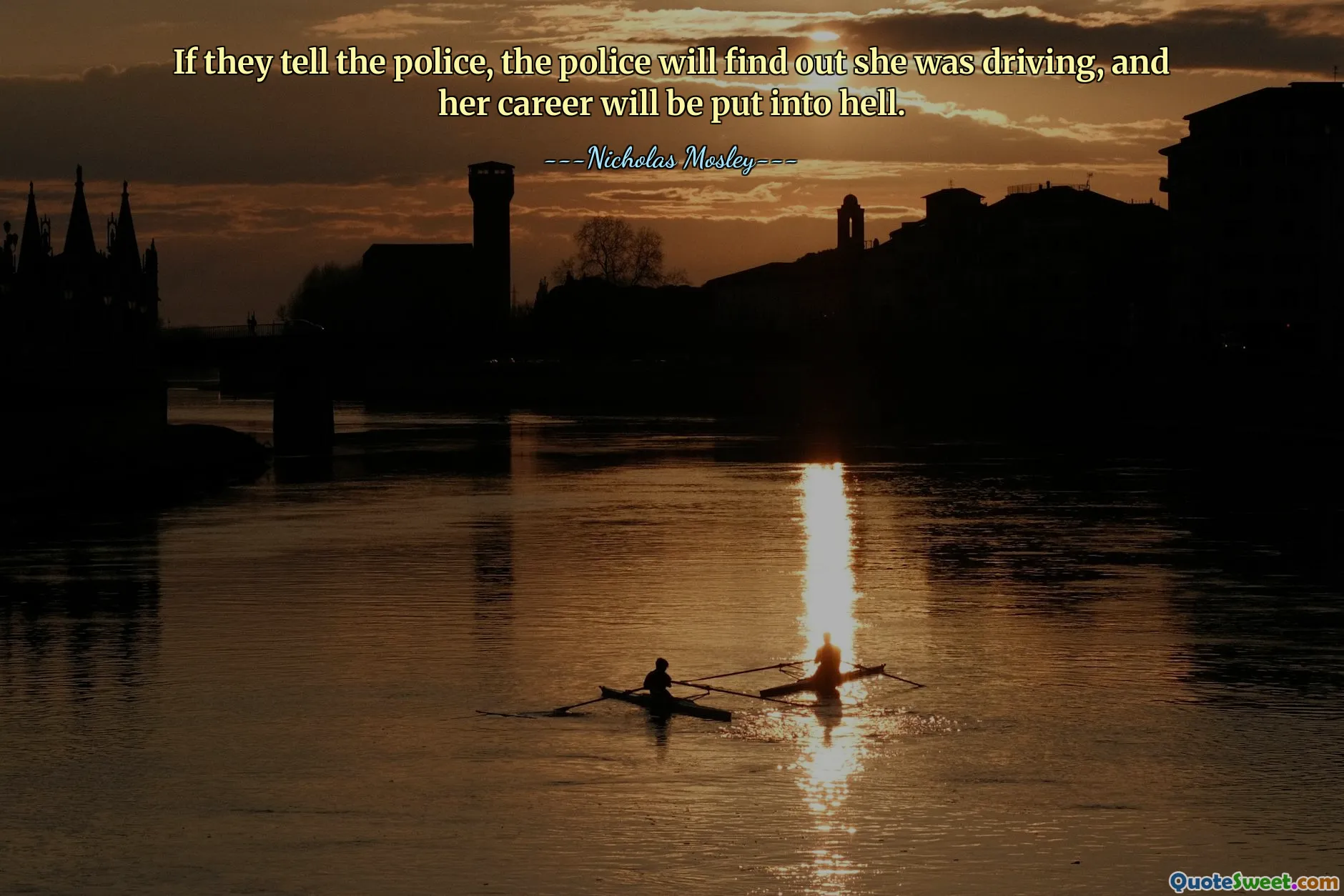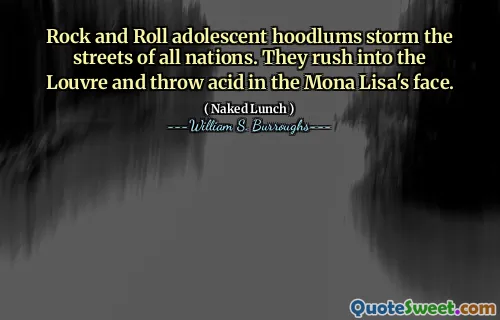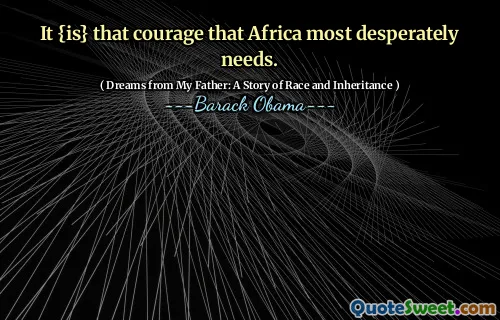
If they tell the police, the police will find out she was driving, and her career will be put into hell.
This quote highlights the complex interplay between morality, secrecy, and the potential consequences of honesty. It suggests a situation where confessing or coming clean might lead to significant personal or professional repercussions, such as destruction of reputation or career. The underlying tension reflects the human dilemma of weighing truth against the potential fallout it might cause. Often, people are faced with choices where honesty might lead to undesired consequences, compelling them to consider the price of transparency versus silence. This dilemma is especially relevant in environments where authority figures or institutions have the power to judge and penalize, making honesty seem risky. The quote also underscores societal pressures to maintain appearances and preserve careers, even at the expense of integrity. Such situations can foster a culture of dishonesty, where individuals conceal truths to avoid severe repercussions. The statement invites reflection on the ethical considerations of honesty, the protective instincts that lead people to conceal the truth, and the potential moral costs of silence. It also triggers questions about justice and fairness—when is it justified to hide the truth? Conversely, what are the long-term consequences of living in fear of exposure? Ultimately, the quote serves as a reminder of the profound impact that choices regarding honesty can have on a person's life, career, and integrity, often complex and fraught with difficult trade-offs.










